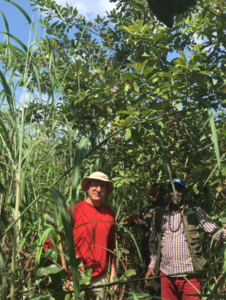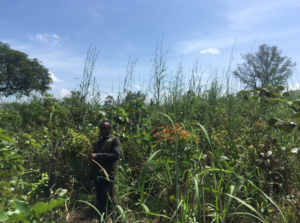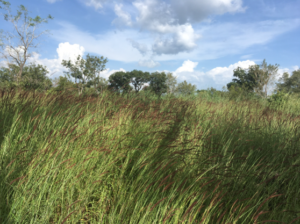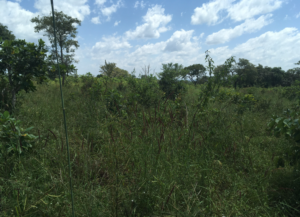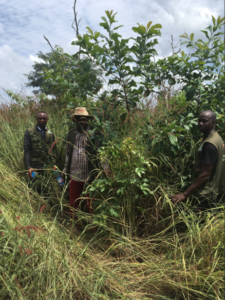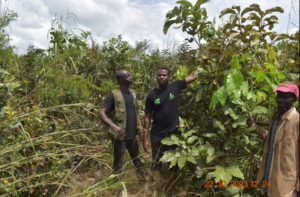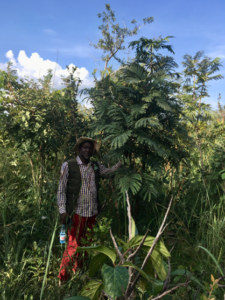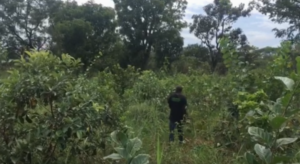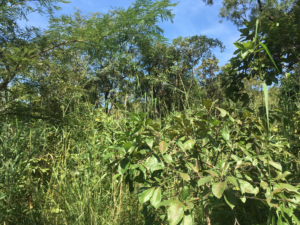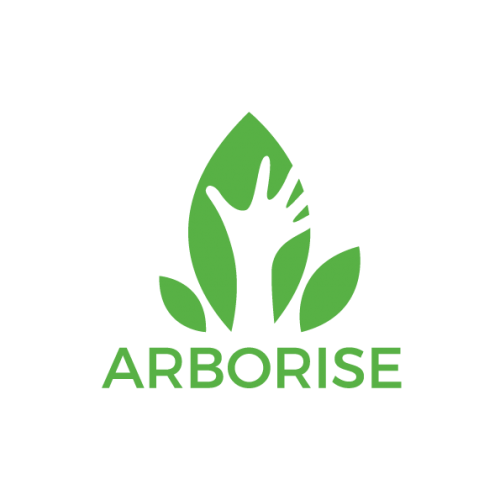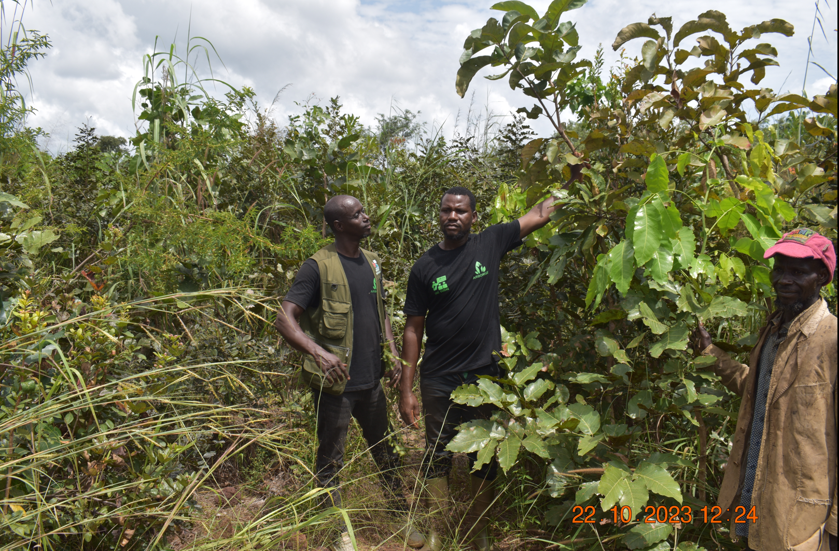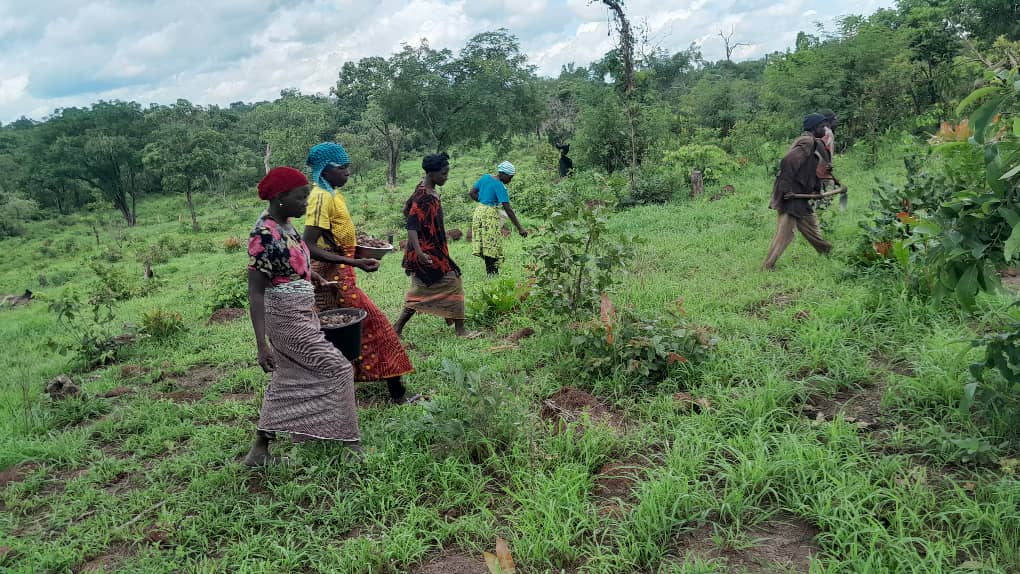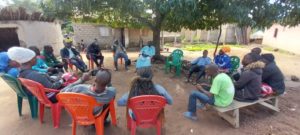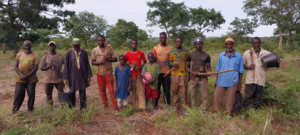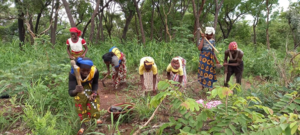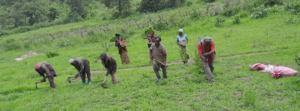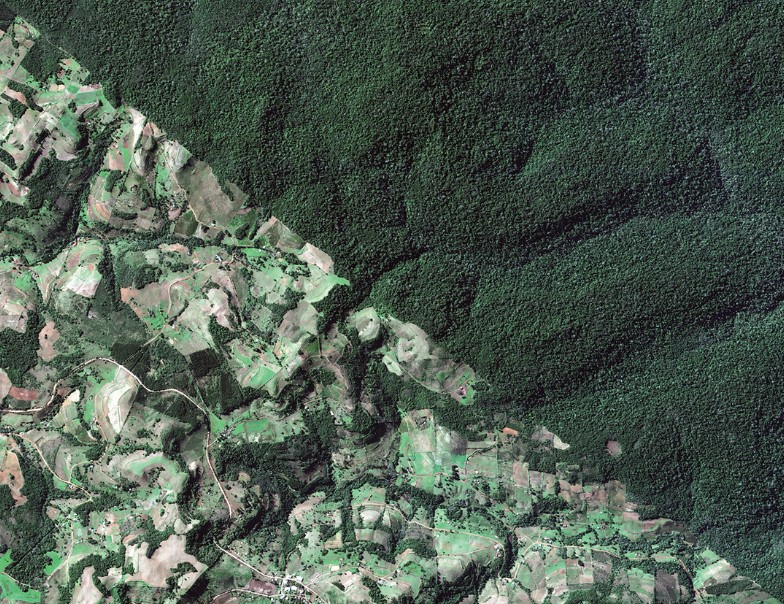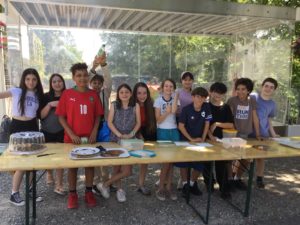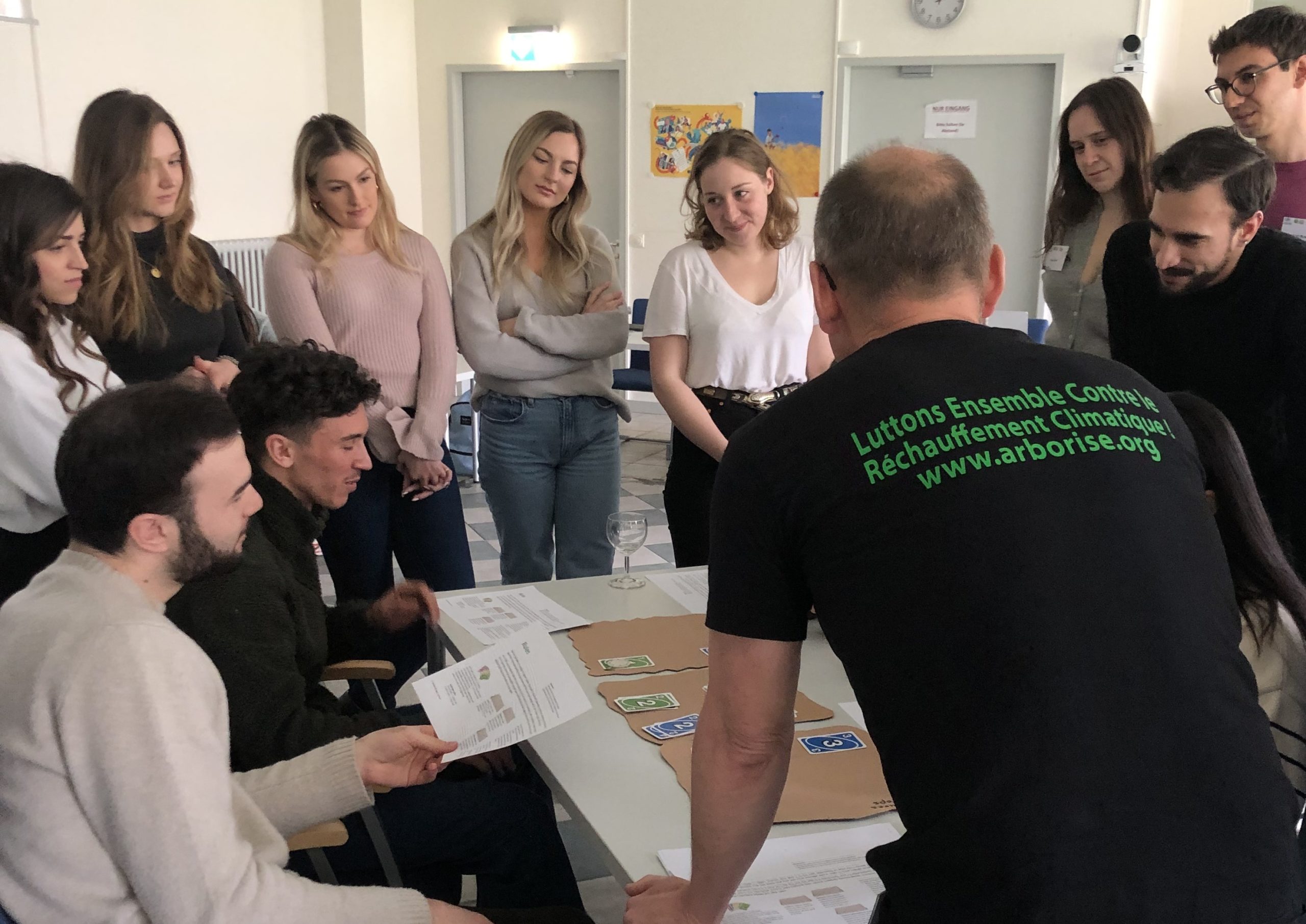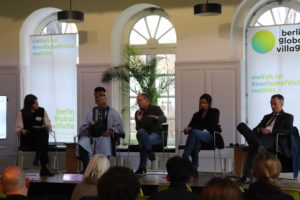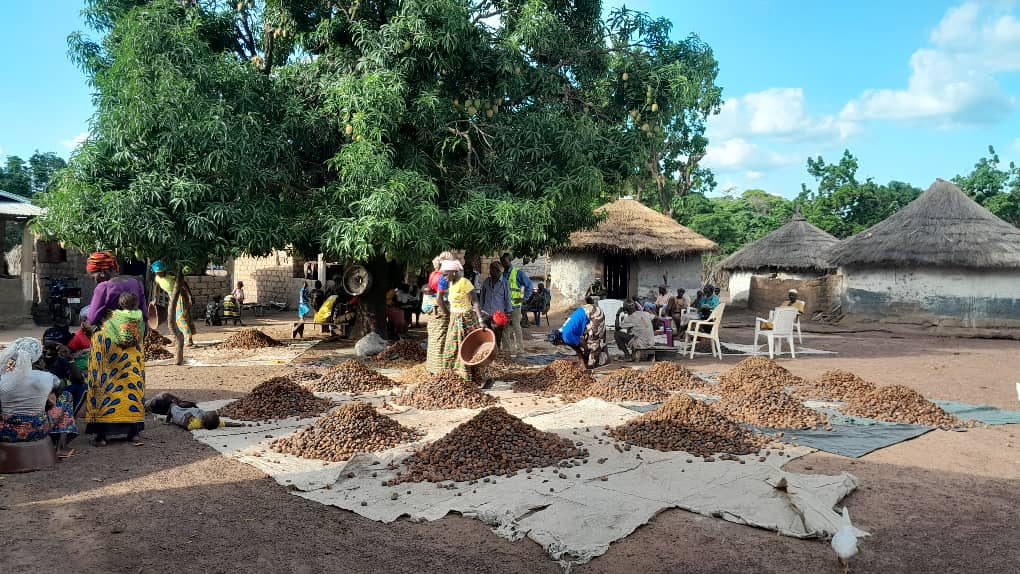When we explain that arboRise is going to finance reforestation and pay all the families involved in the project with revenues from carbon credits, reactions are often mixed. This financing solution does not get good press, even though it’s the only sustainable way of generating the resources needed for a project like ours.
A situation well summed up by Renat Heuberger at the end of New York Climate Week: “What really saddened me this year was that impression of endless quarreling among the environmental community. Removals against avoidance. Tech solutions agains nature-based solutions. Reductions against offsetting. Government-driven against private-driven. And all the fights (mostly among white men) on who helps the local communities best. Have you ever seen fossil fuels companies bashing each other that way? They are smoking fat cigars while we are battling each other.”
It was during a cordial but rather intense discussion with a neighbor (by the way she is convinced by our project) that the idea of a dialogue on carbon offsetting arose. May the following fictitious dialogue be useful in understanding the issues discussed at #COP28.
The neighbor: I think it’s a bit easy for companies to clear their conscience by offsetting their CO2 emissions. Who sets the rules?
ArboRise: The concept of carbon credits was originally invented as part of the Kyoto Protocol in 1997. Most countries were aware of the problem of deforestation and wanted to put a stop to it. But the countries concerned (Brazil, Indonesia, etc. ) could easily demonstrate that this deforestation was imported: because, basically, if you cut down the forests in Amazonia, it’s to graze cows to supply North America with beef steaks; if you cut down the forests in Asia, it’s to grow soya to feed the pigs consumed by China, or to make palm oil to make Nutella or our pizza dough; and if you cut down the forests in Africa, it’s to make cocoa or coffee consumed in Europe (source: Our World in data). So the tropical countries were saying: “Deforestation is caused by you, the rich countries. Without these exports, we can’t develop our economies. In your countries too, you have deforested in order to grow. You can’t stop us from developing. If you want us to stop deforestation, you’ll have to compensate us”. In essence, this is how carbon credits were invented: a mechanism whereby CO2-emitting countries finance the conservation of forests in tropical countries.
The neighbor: well, okay, but deforestation continues…
ArboRise: yes, these mechanisms didn’t work right away. Wealthy countries have introduced laws to force large CO2 emitters (companies producing cement, steel, coal, etc.) to pay compensation, by buying carbon credits, above a certain emissions ceiling, according to the “polluter pays” principle. The idea is brilliant because the carbon markets finally put a price on an externality (CO2 emissions) that was previously free, and this new cost encourages everyone to stop wasting. Alas, to remain competitive, the governments of these countries set their caps too high and their price per ton of carbon too low, which had no incentive whatsoever, and the mechanism didn’t really work for a long time. What’s interesting is that alongside this regulated carbon market, a voluntary carbon market has emerged: some companies started to finance environmental projects of their own accord, without being forced to do so by their governments. You have to realize what this means: these companies are paying for these carbon credits voluntarily! No one is forcing them to do so. They are forgoing dividends for their shareholders.
The neighbor: That’s the first time I’ve heard of companies doing something selfless!
ArboRise: Yes, indeed, it’s pretty crazy. Well, at the same time, it’s not all that selfless! If Migros in Switzerland has its “cultural percentage”, it’s because it improves its image. And image is a key issue for many companies. Of course, this led to a kind of one-upmanship and abuses: some companies claimed to be acting for the climate, when in fact their actions had no impact, or a negative impact, for example on local populations. This was the start of the greenwashing topic. And this is where competition plays an interesting role: big brands, for example in the luxury goods sector, couldn’t afford to be accused of greenwashing, so they began to want to prove that their projects had a real positive environmental and social impact, to differentiate themselves from the black sheeps. It was at this point that the first labels and certification standards emerged (for example, the Livelihood Funds, which set high standards in terms of sustainability and are financed by major players in the luxury goods industry).
The neighbor: Yes, but these labels are once again just window-dressing. In fact, companies buy labels to appear virtuous!
ArboRise: As in many fields, there are labels that are worthless and labels that are very demanding. It’s also worth remembering that the NGOs were the first to criticize corporate greenwashing. Since it’s easy to criticize without providing solutions, some of the major responsible NGOs have decided to set up binding labels of their own. For example, WWF and 40 other international NGOs have created the Gold Standard label, which arboRise applies. Initially, these certification standards only covered environmental aspects. Then, increasingly, the requirements were strengthened with social aspects: protection of workers, promotion of gender equality, safeguarding biodiversity, UN Sustainable Development Goals #SDG, etc. And all quality standards require extensive stakeholder consultation.
The neighbor: That’s all well and good, but there must always be a way of bending the rules or corrupting these standards.
ArboRise: Cheating is becoming increasingly complicated. Because, in the meantime, the rules of the standards (Gold Standard, Verra, Plan Vivo Foundation, etc.) have become extremely complex and demanding. For a small NGO like arboRise, it’s impossible to obtain certification without the help of specialists who know these requirements in detail. Nature conservation and the reduction of CO2 emissions has become a real profession, with training programs (such as environmental engineer at École polytechnique fédérale de Lausanne, for example) and specialized firms that advise companies on how to reduce their emissions, or NGOs like arboRise on how to create projects that comply with the standards. In Switzerland, we are fortunate to have the leading consultancy firm, South Pole, which covers all areas of expertise: from establishing carbon footprints to defining carbon reduction and contribution strategies. And to come back to your question: it’s no longer the standards that audit the projects: it’s other players, approved by the standard but independent, specialized in verifying the application of standards. You’ll tell me that they can be corrupt, but it’s their job to provide impartial proof. They do everything they can to avoid corruption, otherwise they may go out of business.
The neighbor: It’s getting complicated! Even so, all these companies are profit-driven and therefore open to abuse.
ArboRise: But profit isn’t “dirty”! It’s this incentive that has enabled the emergence of voluntary markets, demanding standards, training climate and environmental specialists, having an impact on the Sustainable Development Goals, and so on. It’s a bit absurd to be so fixated on profit… Let me remind you that the solutions put in place by governments at the time of Kyoto didn’t work, we saw that with the regulated carbon markets. What’s more, it’s much easier to bribe a civil servant or a politician than to circumvent the rules in a transparent market. Because, with the voluntary credit system, everything is transparent: all projects are published and anyone can go and check them out in the field.
The neighbor: So that’s why we’re reading all these negative articles in the newspapers?
ArboRise: Yes, in a certain sense, it’s the consequence of transparency. And that’s a good thing: it motivates all players to constantly improve. There’s also a lot of competition between all these players: everyone wants to demonstrate that they have the most sustainable projects, the most robust methodologies and the best impact. And then, in recent years, there has been the contribution of the IPCC, which provides undisputed scientific results on which all players can rely. Combating global warming requires highly specialized skills. And alas many newspapers unfortunately lack this knowledge, preferring to simplify and polarize to boost their circulation.
The neighbor: don’t tell me The Guardian doesn’t have the expertise!
ArboRise: you probably mean the article attacking carbon credits used to combat deforestation?
The neighbor: yes, that article, which described the findings of scientists, confirmed all my doubts.
ArboRise: So let’s talk about it! First, please remember that the scientists (Source Material), whose work was reported by the Guardian, only analyzed carbon credits generated by the prevention of deforestation, known as #REDD+, which stands for “Reducing Emissions from Deforestation and Forest Degradation”. All other projects which generate carbon credits (reforestation, renewable energies, energy efficiency, etc.) were therefore not concerned. Unfortunately, the newspaper headlines spoke of “carbon credits”, casting doubt on all projects.
The neighbor: yes, it’s true that it’s confusing. But let’s get to the heart of the matter: Source Material compared the areas protected from deforestation by the projects, and what was happening next door, in unprotected areas. They found that there was less deforestation “next door” than the projects claimed, and therefore that the projects had overestimated their positive impact.
ArboRise: Indeed, the challenge is to measure the difference between the effect of the project (less deforestation) and what would have happened if the project had not taken place. To do this, we need to observe what happens in the vicinity of the project. But what is “nearby”? In fact, we don’t know how Source Material chose these “nearby”, unprotected areas. Well, we do know: they chose these areas arbitrarily, without any methodology. But if the “nearby” areas you choose are, for example, sacred forests, it’s clear that you won’t see any deforestation there! Or if you measure deforestation in places where there’s no anthropic pressure, you won’t see deforestation there either. That’s not to say that deforestation wouldn’t have occurred where the projects are located. In fact, after the Guardian article, other scientists did the same measurements, in other places, closer to the projects, and found high rates of deforestation…, But the Guardian was careful not to publish this.
The neighbor: well, let’s admit it. So it’s a question of methodology?
ArboRise: yes, in fact, in projects to combat deforestation, they try to measure what would have happened in the project area if it hadn’t taken place. And that’s very difficult. What would have happened if we hadn’t invented the steam engine? What would have happened if America had been discovered 100 years later? In these projects, baseline calculation methodologies are a bit like making history fiction.
The neighbor: Yes, but shouldn’t we impose credible methodologies?
ArboRise: First of all, we need to give researchers time to create them. It’s far too early to regulate. And, between you and me, I’d be wary of a State imposing such methodologies. It could be very tempting for certain governments to dictate to scientists how to rewrite history, because that’s what it’s all about. But let me come back to the findings of this group of Guardian scientists. Let’s imagine that they were right and that there is less deforestation in areas adjacent to the REDD+ project. Then they might have proved that the projects’ counter-deforestation measures have a virtuous effect on adjacent areas too! You see, these results can also be turned in a positive direction. But the media prefer polarization.
The neighbor: Yes, that’s true, and it’s true what you say: it’s possible for these projects to have positive effects outside their area of activity, I hadn’t thought of that. I’d still just like to understand what happens if a project is found to have lied. Who does it have to compensate?
ArboRise: Mind you, I’m still convinced that the vast majority of projects to combat global warming don’t have bad intentions, in fact all of them. But let’s admit that a project has overestimated its impact and that the certification standard hasn’t seen a thing. The first consequence is that the companies that bought the carbon credits paid too much for them. If they have paid, say, $100,000 for 10,000 tons of CO2 removed, when perhaps only 1,000 tons were actually removed, then these companies have paid $100 per ton of CO2, not $10. These companies could perhaps demand a refund. And the certification standard will require a drastic revision of the project. With the risk of the project losing its certification.
The neighbor: I see. So projects really have no interest in cheating. But, honestly, do you believe in these REDD+ projects (fight against deforestation)?
ArboRise: Before answering your question, I’d like to come back to those projects that supposedly “cheat”. On the one hand, it’s unfair to accuse them of lying, and on the other, I’d like to hear more about all the companies that do nothing and therefore don’t expose themselves to criticism. Those are the ones NGOs should be concerned about! Now, regarding your question: my conviction, shared by the IPCC, is that we need to do two things: firstly, we need to reduce CO2 emissions, and secondly, we need to remove excess CO2 from the atmosphere. So any project that avoids fossil fuel emissions is a good idea: improved cook stoves, wind turbines, photovoltaics, biogas, etc. And any project that absorbs the CO2 excess in the atmosphere is a good idea. And all projects that absorb carbon naturally (reforestation, regenerative agriculture, mangrove restoration, etc.) are even better, because they generate ecosystem services and strengthen biodiversity. As for projects to combat deforestation, I have mixed feelings: mature forests are certainly carbon sinks, but they absorb far less CO2 per hectare than young forests. It therefore takes huge areas to achieve the same result, and these very large spaces are difficult to control. And, as we’ve seen, it’s difficult to measure the baseline. What’s interesting is that the market shares my opinion: carbon credits from reforestation projects have the highest prices, whereas the market values other types of project less highly.
The neighbor: Speaking of prices, we keep hearing that carbon prices are too low. How do you explain this?
ArboRise: There are two factors influencing prices. The first is the law of supply and demand: there are still too few companies buying carbon credits – either voluntarily or because the law forces them to do so – compared with the supply of carbon credits from projects like arboRise. With 2 billions $ it is still a small market. But legislation is changing and the pressure on companies is increasing. Demand will increase, which will push up carbon prices. And that’s the second factor: the more companies anticipate a high carbon price in the future, the more they’ll buy credits in advance, which will raise prices today, which will be good for projects like arboRise. That’s the problem with articles like the one in the Guardian: the more the carbon markets are attacked, the less companies think they’ll ever be forced to buy expensive credits, and so the fewer they buy today. This is where governments can play a role: introduce binding legislation and force companies to measure their emissions, reduce them and offset residual emissions.
The neighbor: If I understand correctly, the lower carbon prices are, the more advantageous it is for companies to just offset their emissions, without trying to reduce them.
ArboRise: Yes, you’ve got it right. That’s why I “militate” in favor of carbon credits: the more companies anticipate higher prices, the more expensive carbon offsetting will become for them, and the more this will encourage them to invest in reducing their emissions rather than offsetting them.
The neighbor: Yes, at the moment, carbon offsetting is a bit of a lazy pillow for companies.
ArboRise: I think it’s also a lazy pillow to always be blaming companies. Let’s take the example of a company I know well: Swisscom. I analyzed its carbon footprint in detail in the sustainability report. Swisscom has already significantly reduced its CO2 footprint. 70% of its residual carbon footprint comes from buying smartphones from Apple, Samsung and others. Why? Because consumers persist in wanting to replace their smartphones – like their cars, clothes, etc. – far more frequently than necessary. And we are the consumers.
The neighbor: Yes, and that’s why some companies are launching “carbon-neutral” products to give consumers a clear conscience…
ArboRise: Indeed, it’s up to consumers to take responsibility and check that offset projects are certified to a demanding standard. I prefer companies to admit that they can’t immediately reduce all their emissions and to finance good projects. I don’t believe in anti-greenwahsing regulations. Prohibiting companies from launching such products will simply lead to green-hushing: they’ll stop communicating and we’ll lose transparency.
The neighbor: well, I don’t know if you’ve convinced me, I’m still suspicious. I simply don’t believe that the profit motive is compatible with sustainability.
ArboRise: You’re free to be distrustful, but you have to realize that this distrust, fostered by the media, has an enormous cost:
- First, it encourages standards to make their rules ever more complex and rigid, to protect themselves against any media criticism. And this discriminates against all innovative projects that don’t fit into the framework.
- Secondly, these increasingly complicated rules require the support of experts trained in high-income countries. This is totally discriminatory for countries in the Global South, which don’t have the skills or budgets to afford these salaries. And the countries of the South remain dependent on the countries of the North.
- Thirdly, it encourages standards to introduce numerous reserves to insure against all risks.
Did you know that around 50% of a project’s carbon revenues are used to finance the insurance of the standards and the specialized skills of the experts? All this money remains in rich countries, when it would be more useful in the Global South. And this is the direct consequence of our society’s mistrust and aversion to risk. In a world of reciprocal trust, these intermediaries would be superfluous, and a company could enter into a compensation/contribution agreement directly with a project, with both partners sharing the share of standards and consultants, to the benefit of local communities (This is what Romande Energie does with arboRise, by the way). So, my dear neighbor, remain suspicious if you like, but be aware of the consequences: it’s the populations of the countries of the South who ultimately pay the price for your suspicion! And they’re also the ones asking us to tone down our distrust: https://www.fscindigenousfoundation.org/global-south-voices-in-support-of-redd/
The neighbor: you may be going a bit too far… but there’s probably some truth in what you’re saying. Let’s imagine that all the players play the game and can be trusted. Governments no longer have any role to play?
ArboRise: On the contrary! But they have to regulate effectively. For example, the EU regulation on products derived from deforestation seems to me to be relevant. It forces Nestlé, for example, to reduce deforestation due to the lack of traceability of cocoa.
The neighbor: Yes, Nestlé has just announced that it is abandoning carbon offsetting. But isn’t that bad news for arboRise?
ArboRise: it’s always better to reduce CO2 emissions due to deforestation, than to offset them. Regarding this regulation, our project is not affected because cashew nuts, grown in Guinea, are not (yet) included in these products. If it were included, this would be positive for our project, as it would discourage local growers from replacing “our” trees with cashew plantations. Another good regulation is the EU’s carbon tax, which penalizes exported CO2: companies that relocate just to be able to pollute elsewhere and thus reduce their production costs will no longer be able to do so without paying a tax. This will push up carbon prices and force companies to rethink their production chains.
The neighbor: Ultimately, all this is still very fluid and uncertain. What do you think will happen in the long term?
ArboRise: all the negative articles on carbon markets will contribute to reinforcing requirements and inventing robust methodologies. This will have a cost: projects will become more expensive and carbon prices will also rise as a result. But carbon markets will never disappear. I also believe that, little by little, CO2 emissions from fossil fuels will be reduced, thanks to the efforts of companies to reduce their emissions and to judicious regulation, in the hope that consumers will also make an effort and in the hope that the media will understand the matter. In the very long term, the consequence will be that there will be less and less money for emission reduction projects (REDD+, solar, energy efficiency, etc.). On the other hand, there will always be a need to remove gigatons of excess CO2 from the atmosphere to reduce global warming and “cool” (without air conditioners!) our increasingly overheated regions. Today, only nature-based solutions, in particular tree planting, can do this. There will always be a future for tree planting, because it helps to decarbonize the atmosphere. By the way, at the next COP you’re going to hear a lot about “magical” technologies that absorb CO2 from the atmosphere, which remains to be proven.- The only removal technology that works today is photosynthesis.
The neighbor: That’s good news and I’ll always be in favor of it. But I remain sceptical about the new indulgences represented by carbon credits. You know, in the Middle Ages, buying indulgences enabled sinners to get the clergy to intercede with God to avoid going to Purgatory. It delegated the expiation of sins. A bit like carbon offsetting.
ArboRise: Ah, you’ve saved that argument for last! Let me remind you that the reason there were indulgences in the first place was that people began to be scared of purgatory. People no longer went to confession to repent of their sins, but out of fear of punishment after death. Today, too, people are frightened. New Lutherans claim that ecological sins must be atoned for with pain. We must suffer, and if possible, the rich people must suffer more. It’s as if we forbid ourselves an easy ecological transition. I’m convinced that the transition has to be smooth, so that the whole population accepts the change. Adopting carbon offsetting measures is one way of facilitating this transition. I remind you that the suppression of indulgences led to the religious wars. So, yes, carbon offsetting is a form of indulgence, but it’s necessary for a smooth and peaceful transition.
The neighbor: well, we had a good chat. It was really interesting and I learned a lot. What do we do now?
ArboRise: Well, let’s plant a tree!
